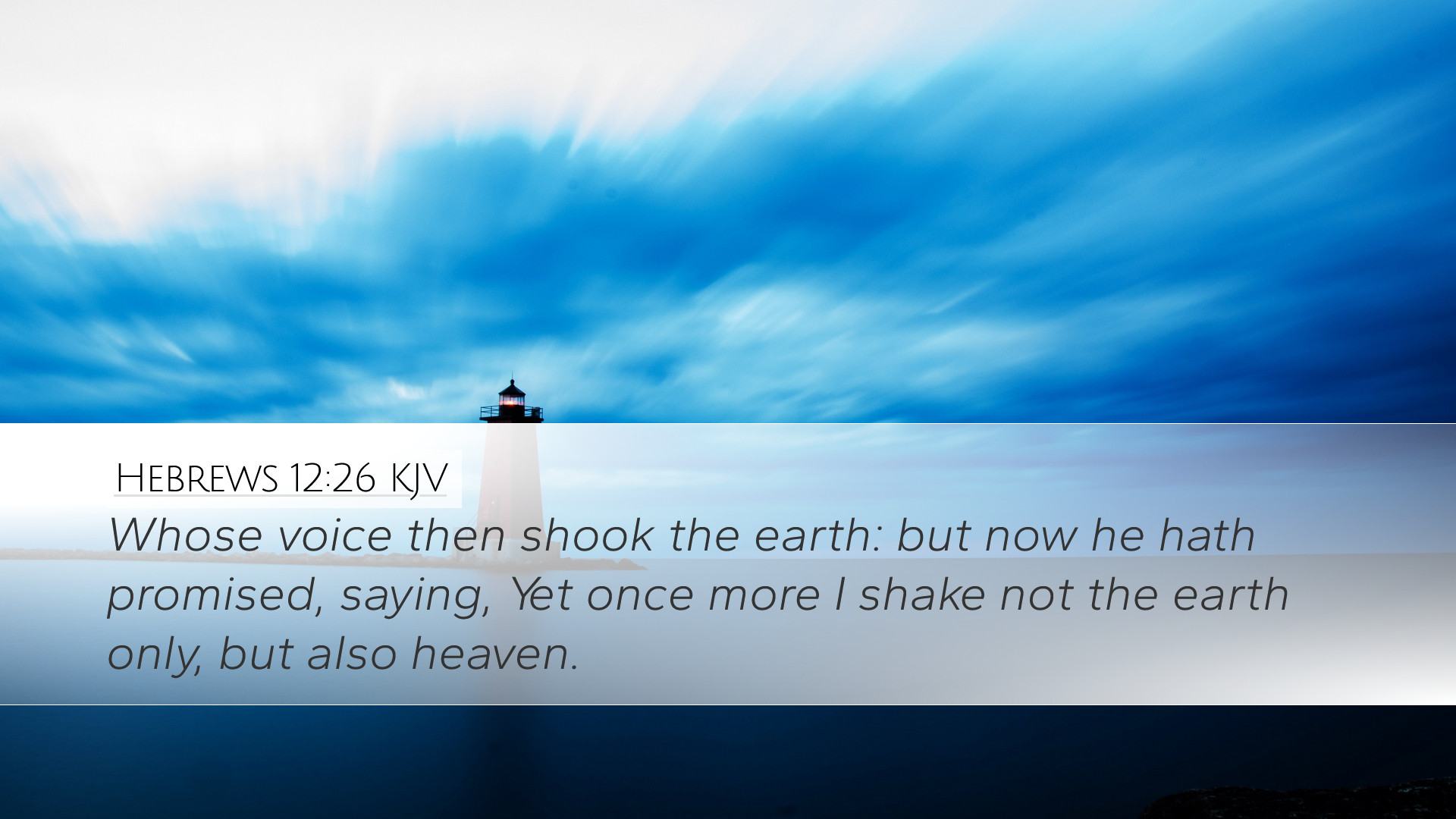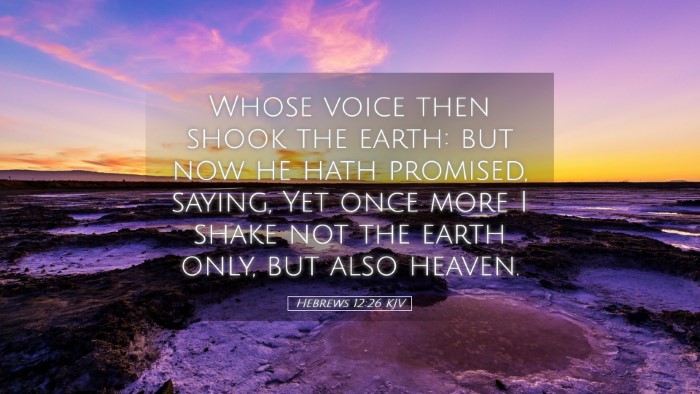Commentary on Hebrews 12:26
Verse Analysis: Hebrews 12:26 states, "Whose voice then shook the earth: but now he hath promised, saying, Yet once more I shake not the earth only, but also heaven."
This verse is a vivid reminder of the power of God's voice, recalling the dramatic event at Sinai where God's presence caused the earth to tremble. The author of Hebrews employs this imagery to illustrate the unshakeable nature of the new covenant through Christ.
Context of the Passage
The context of Hebrews 12 is vital for understanding this verse. The author speaks about endurance in faith, contrasting the Old Covenant and the New. The shaking mentioned here signifies not just physical upheaval but also the profound spiritual transformation that Christ brings.
Theological Insights
- Divine Authority: The shaking of the earth underlines God's authority over creation. As Matthew Henry notes, God is the ultimate arbiter of both heaven and earth.
- Promise of a New Reality: The promise that He will shake not just the earth but also heaven suggests a coming transformation of reality. Adam Clarke emphasizes that this points to the eschatological hope we have in Christ.
- Shaking as Judgment: The shaking may also symbolize God's judgment against unfaithfulness. Albert Barnes articulates that it serves as a warning to the believers about the seriousness of turning away from God's covenant.
Insights from Matthew Henry
Henry elaborates that the voice of God that shook the earth is a reminder of His might. In the narrative of Israel at Mount Sinai (Exodus 19:18), the trembling of the mountain revealed God’s majesty and holiness. Henry suggests this passage teaches us about the transient nature of earthly things compared to the eternal kingdom established by Christ.
Insights from Albert Barnes
Barnes highlights the dual nature of the shaking: it suggests both a disruption of the old and an establishment of the new. He emphasizes the stability of God's kingdom in contrast to the instability of earthly kingdoms, a significant comfort for believers facing trials and persecution. He reminds us that while the old order is passing away, the new covenant is everlasting.
Insights from Adam Clarke
Clarke presents a thorough exploration of the prophetic implications of this shaking. He links it to prophetic scriptures that describe the ultimate reconciliation of heaven and earth. Clarke's emphasis on the completeness of this transformation encourages believers to expect a restored creation where God reigns unchallenged.
Practical Applications
- Encouragement in Trials: Understanding that our faith is anchored in the unshakeable kingdom of God provides strength during difficult times.
- A Call to Faithfulness: This passage serves as an exhortation to remain steadfast in our faith amidst life's uncertainties, knowing that God’s promises are secure.
- Hope in Restoration: The promise of a renovated creation encourages believers to look forward to the fulfillment of God’s redemptive work in Christ.
Conclusion
Hebrews 12:26, when understood through the lenses of these historical commentaries, offers rich theological depth. It reflects God’s sovereignty and the transformative power of the new covenant. As we contemplate this verse, we are called to respond with faithfulness, hope, and a deeper understanding of our divine inheritance in Christ.


